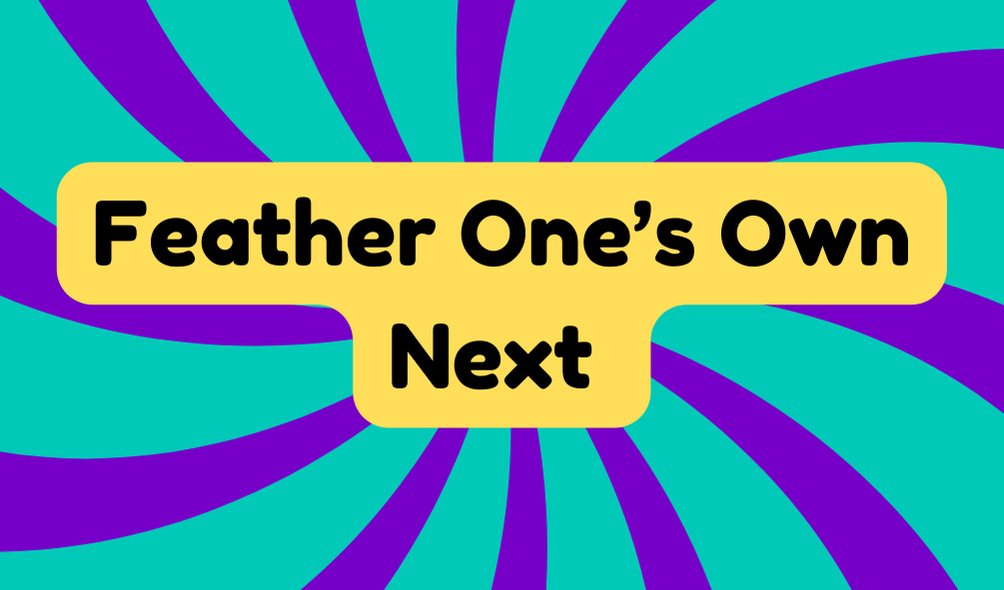When you "feather one's own nest," you're often putting personal gain above the well-being of others. This self-serving behavior can be seen in politicians who divert funds for their benefit while ignoring community needs. It's linked to greed and opportunism, where individual interests overshadow collective responsibility. The expression originates from birds gathering materials for their nests, but it's evolved to highlight ethical concerns in human actions. Today, with increasing economic inequality, this phrase reminds us to scrutinize who truly benefits from certain practices. There's much more to explore about these behaviors and their implications for society.
Synonyms
When you think about "feathering one's nest," several synonyms come to mind that capture the essence of self-serving behavior or resource accumulation. These terms reveal the underlying pursuit of personal gain, often disregarding the welfare of others.
- Self-serving: Focusing on benefits for oneself, often at a cost to others.
- Opportunistic: Taking advantage of situations for individual advantage.
- Greedy: An excessive desire to acquire more than one needs, often leading to unethical decisions.
Example of Sentences
Anyone can find examples of the phrase "feather one's nest" in everyday life. Whether discussing personal wealth or corporate ethics, these situations often reveal ethical dilemmas. Here are a few illustrative scenarios to reflect on:
- A politician misallocates funds, prioritizing personal gain over community needs.
- A manager employs sneaky feathering strategies to benefit financially while neglecting team welfare.
- Friends might opportunistically exploit each other's connections, focused solely on personal aspirations.
These examples highlight how feathering one's nest can sometimes come at the expense of others. It's important to remain aware of these dynamics. Analyzing such behaviors encourages more ethical decision-making and a collaborative spirit, fostering a culture where ambition doesn't trample on shared values.
Origin
The phrase "feather one's nest" has a rich history that adds depth to its meaning. Originating in the mid-1500s, it reflects bird behavior, particularly nest building, where birds gather materials like their own feathers to create a warm, safe environment. While seemingly innocent, this phrase has evolved to depict more self-serving motives.
| Aspect | Description | Example |
|---|---|---|
| Bird Behavior | Collecting materials for nesting | Using feathers for warmth |
| Nest Building | Creating safe spaces for young birds | Building intricate nests |
| Human Context | Exploiting others for personal gain | Misusing resources for wealth |
In both nature and society, it shows how self-interest can overshadow community spirit, transforming a simple act into a moral dilemma.
Collocations
Collocations related to "feather one's nest" reveal the phrase's nuanced application in various contexts. You might notice how it intertwines with discussions about ethical implications and societal perspectives. These phrases often highlight the tension between self-interest and communal responsibility. Here are a few notable collocations:
- Feather one's nest at the expense of others
- Commit ethical violations to feather one's nest
- Individuals feathering their nests amidst economic disparity
As you explore these collocations, consider how they encapsulate the complexities of modern life. The phrase doesn't just signify personal gain; it also raises questions about the morality of our choices and behaviors. By understanding these nuances, you engage in deeper conversations about integrity and social justice, fostering a more conscious worldview.
How to Use in Everyday Language
Using the phrase "feather one's nest" in everyday language can add depth to discussions about ethics and personal motives. It's vital to take into account its ethical implications. This idiom can spotlight actions that prioritize self-serving interests over community well-being. Here's a table to outline different contexts and their ethical ramifications:
| Context | Action Taken | Ethical Implications |
|---|---|---|
| Business | Misuse of company funds | Erosion of trust and integrity |
| Politics | Favoritism in policies | Undermines democracy and fairness |
| Personal Finance | Exploiting others | Promotes inequality and injustice |
| Social Helper | Ignoring community needs | Lack of social responsibility |
| Leadership | Prioritizing self-interest | Deteriorates moral leadership |
Incorporate this idiom wisely, as it elevates the conversation around personal responsibility and ethical behavior.
Why Is It Still Relevant Today?
Feathering one's nest remains incredibly relevant today as it highlights the ongoing tensions between individual gain and community welfare. In a world grappling with economic inequality, you can see how some people exploit systems for personal benefit, often at the expense of others. This self-serving behavior raises questions about ethical leadership and integrity. When leaders prioritize their nests, they risk deepening societal divides and neglecting their responsibilities to the community. As innovation drives change, you'll notice that discussions around wealth accumulation and social justice become even more essential. Understanding this relevance prompts a critical viewpoint on ethics, pushing for accountability. Ultimately, it's not just about personal success—it's about fostering a society that values collective well-being.







